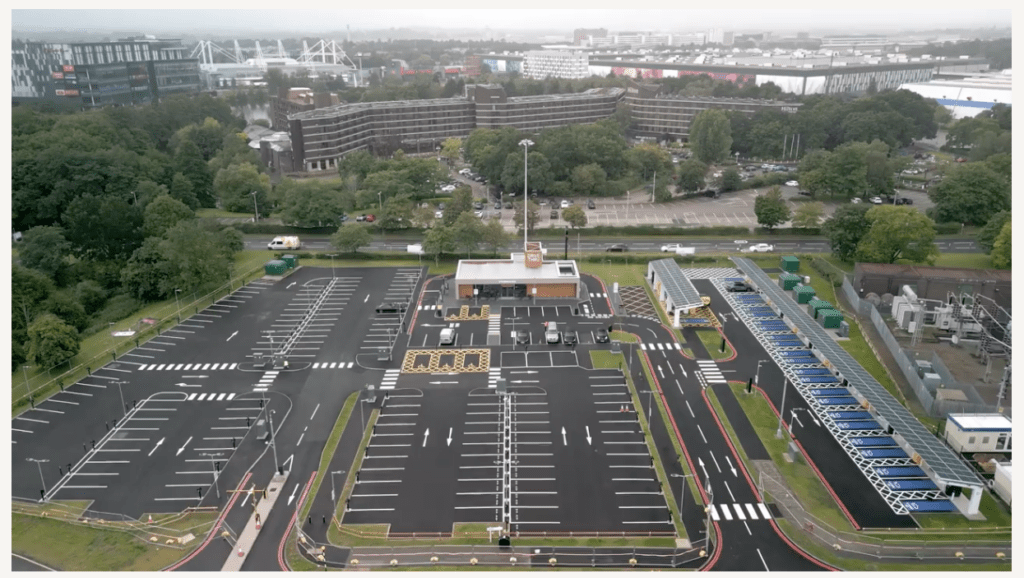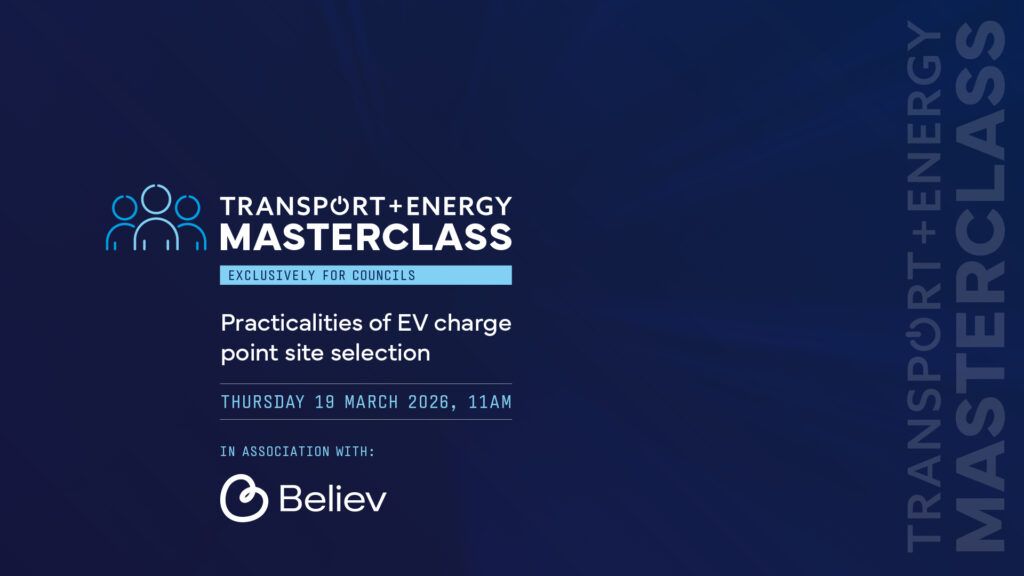A new electric vehicle charging hub at Birmingham NEC – which is big enough to charge 180 cars simultaneously – is set to be opened by the Chancellor Jeremy Hunt in Birmingham today (Thursday 7 September).
It marks a significant boost for Britain’s electric car charging network, becoming the largest electric vehicle charging site in the UK.
The Gigahub, located at the city’s NEC Campus, is the largest-ever private investment in a UK electric vehicle project to date. The project has been developed by a three-way collaboration between the NEC, EV Network and bp pulse, and is now operated by bp pulse. It is funded by a record £8 million from its investment partner, Zood Infrastructure Limited. The site will provide 30 super-fast, 300kw DC charging bays and a further 150, 7KW a/c charging bays – one of the largest amounts of super-fast chargers in one location in the UK.
The site is strategically positioned to become a major transport hub for the future – located in the heart of the UK motorway network, including the M42, M46 and A45 and the new HS2 interchange station.
The site supports the Government’s electric vehicle infrastructure strategy and commitment to decarbonising transport, backed with more than £2 billion to support the transition to zero emission vehicles including accelerating the rollout of chargepoint infrastructure.
As part of that, Government and industry have so far supported the installation of over 45,500 publicly available electric vehicle charging devices, including more than 8,600 rapid devices.
The number of public chargepoints rose by 38% over the last year, and as a recent report from the National Infrastructure Commission points out, if charge point deployment grows at around 30% per year the 300,000 expectation will be met.
The Chancellor of the Exchequer, Jeremy Hunt, said: ”This is the biggest private investment in electric charging in the UK and is a huge vote of confidence in Britain’s role as a leader in green industries.
“The ground-breaking site will be a major transport hub for the future and marks a significant step in our rollout of electric vehicle charging infrastructure across the country”.
Decarbonisation Minister Jesse Norman said: “Electric vehicles will play a crucial role in helping the UK to decarbonise transport and reach net zero.
“Today’s measures will deliver tens of thousands of charge points across the country, boosting the economy and creating skilled jobs.”
Paul Thandi CBE, DL Chairman of NEC Group, said: ”We are proud to contribute to the UK Government’s Electric Vehicle Infrastructure Strategy. Working in collaboration with EVN and bp pulse, the opening of our EV charging hub provides NEC Campus customers, commuters, and those working for local regional or national businesses, a reliable and convenient way to recharge and support a lower carbon travel future.
“This strategic collaboration and initiative strengthen our destination offer, demonstrate our commitment to reducing the impact our business practices and our Masterplan credentials have on the environment, and ultimately supports a reduction in carbon emissions.”
Akira Kirton, vice president of bp pulse UK, said:
“The transition to electric vehicles is evolving at pace which is why bp pulse is focussed on accelerating the development of the UK’s EV infrastructure, delivering the right charging speeds, in the right locations and investing up to £1 billion to do so.
This new, nationally significant bp pulse Gigahub at the heart of the UK’s road network, is another great example of our strategy in action. We plan to roll out hundreds of hubs this decade in places EV drivers needs them – urban areas, on trunk roads and motorways and at destinations such as restaurants, retail parks and hotels.”
Alexander Walsh, Senior Managing Director at Blackstone, said:
“The opening of the UK’s largest EV charging hub at the NEC is a significant step forward as more drivers across the UK move to electric vehicles, with sites like this playing an important role in supporting the UK’s energy transition.
“Blackstone has been invested in the NEC since 2018, and this development demonstrates the positive impact private investment can have in driving innovation and creating green jobs, and we’re proud to be backing the industries of the future in the West Midlands and beyond that are helping build a more sustainable future.”
Reza Shaybani, CEO, and co-founder of the EV Network, said:
“The launch of one of Europe’s largest ultra-fast Gigahub is a massive game changer for EVN and a huge step forward for UK electric vehicle fast charging. The EVN team responding to the public demand for more – charging and we are responding with hundreds of millions of pounds of new investment and the very latest technology.
“EVN has already built dozens of sites across the UK, but the successful completion of this new project launches us onto a much more ambitious growth path, as the leading business in our sector with a range of exciting new partners.
“The NEC was a perfect location that is not only geographically key, but of national significance, to support the EV charging landscape. EVN secured 6.5MVA grid connection, to support the entire infrastructure. The strategic placement and impressive scale of this charging hub within the UK’s transport infrastructure offers reassuring support to drivers journeying between cities.
“Our long-term relationship with both the NEC Group and bp pulse ensures this is not just an investment for the site’s visitors but a transformative step towards bolstering the entire EV charging infrastructure of the UK.
“At EVN we are excited to invest £100M in EV Infrastructure projects this year, and we aim to invest a further £300M equity by 2025.”
Alongside this, UK Research and Innovation has announced that Innovate UK has awarded £5.8m of funding to 12 projects through the Driving the Electric Revolution Challenge Fund. Winning projects include work on best practice in automation and robotics to produce EV chargers, and the scale-up of the assembly manufacturing processes for a rare earth-free permanent magnet generator – allowing us to produce electric machines without using rare earth elements.
Image courtesy of Shutterstock.












